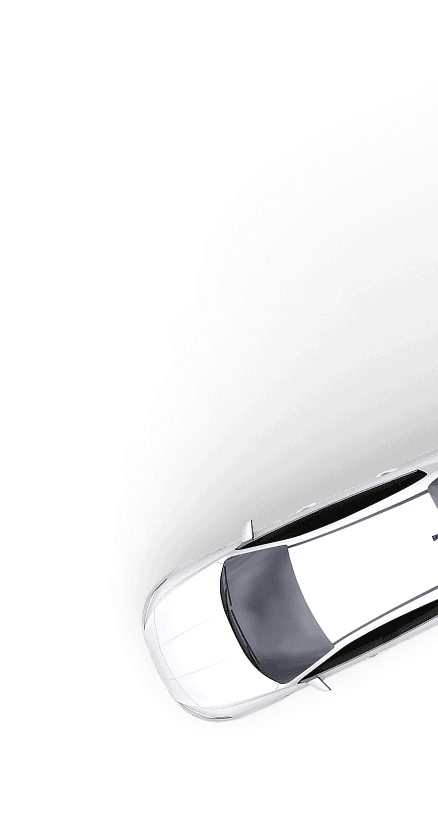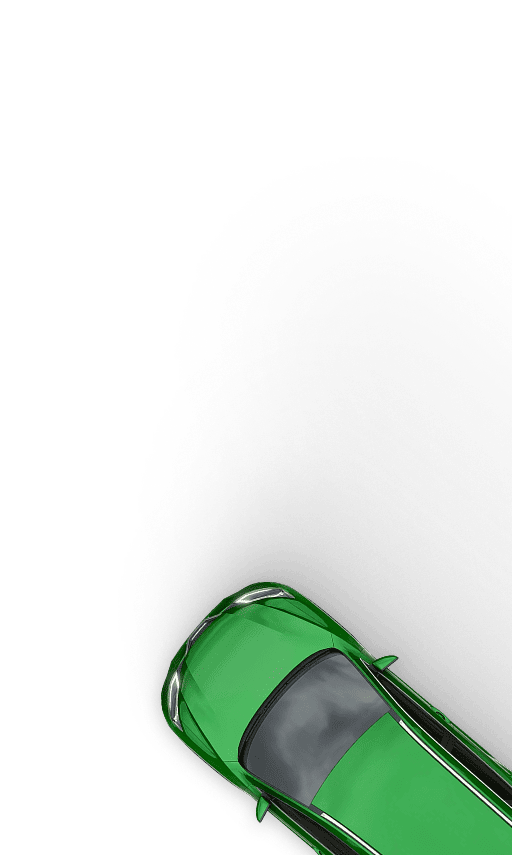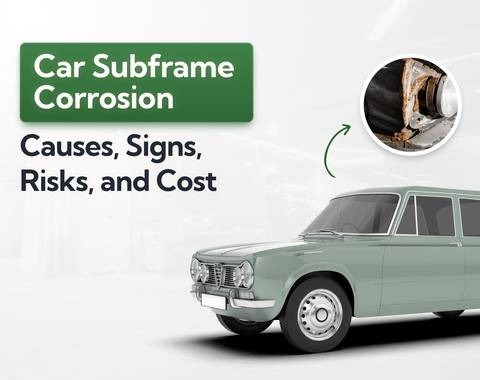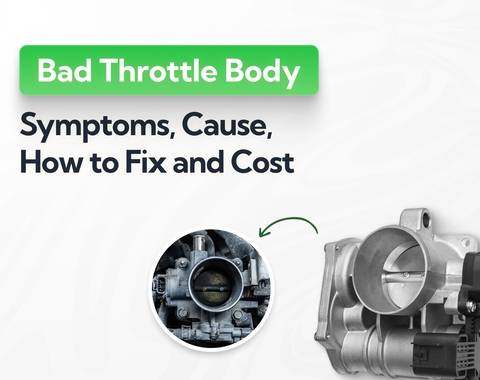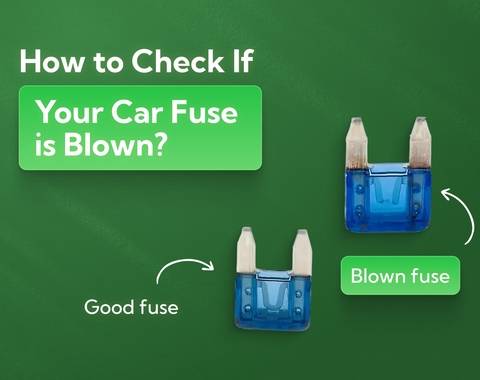How to Buy Cars at Auction
Thinking about buying from a car auction? Whether it’s online or in person, you’ll need to register first and the process isn’t always straightforward. This guide walks you through how auction registration works, what documents you’ll need, and the rules to know before you start bidding.
Last updated: 22nd October, 2025

Anthony Sharkey is COO at New Reg Limited (Car.co.uk, Trader.co.uk, Garage.co.uk), driving innovation in vehicle recycling, logistics, and customer experience.

Listen to this story
It’s worth remembering if you’re planning on purchasing a cheap car at a dealership, via private seller or online that most auto traders gather their stock from used car auctions. Purchasing your own car at auction effectively cuts out this extra party and avoids any additional cost this may accrue.
However, you must be confident in your knowledge about cars and know what you’re buying to be successful at a car auction. If this doesn’t sound like you but you’d still like to bid, make sure you take along a trusted friend with the auto knowledge you don’t possess. It’s also good advice to visit at least four car auctions before you ever take part, simply to get a feel for the event, understand exactly how it all works and familiarise yourself with the rapid-fire bidding.
Read on to find all you need to know on the topic of how to buy cars at auction:
What's in this article
How to buy cars at auction
It’s advised that you attend a few local auctions so that you understand the process before taking part. Once you’re comfortable, set a budget and make sure you stay inside this limit. While bidding starts low, it can rise quickly and soon become expensive. Prior to a sale, don’t hesitate to ask auction staff about anything you’re not sure of. Always keep a clear head and don’t give in to impulse bidding and buying. Research the prices of similar vehicles and have a budget that you stick to.
Arrive early on auction day so you’ve got a chance to inspect the vehicle you want to bid on. While no test drive will be possible, examining a car that takes your fancy before the sale will allow you the chance to check it out. You’ll be able to look inside and read any included documentation, and the auction staff may even start the engine for you upon request. Listen for any suspicious noises and study the exhaust for white or blue smoke, as these are strong signs of problems.
Take a good look at the vehicle’s bodywork from a variety of angles, especially down the side to ensure it’s straight. Examine the bodywork found below doors, commonly called sills. These should be completely free from signs of structural damage such as dents.
It’s always a smart idea to conduct a thorough vehicle history check for your desired used car, and this is especially important at auction. Organisations such as HPI will charge just £20 to run a check on a vehicle’s history, and if you’re checking more than one car they’ll sometimes offer discounts. Running this check should give you the peace of mind that your intended purchase hasn’t been part of a serious traffic accident or has some outstanding finance agreement attached to it. A car check of this kind should also give you a rough estimate of the vehicle’s worth.
All cars that come to auction will each have a detailed description drafted by the auctioneers. It’s important that you read these carefully, as the description contains vital information, such as disclaimers and additional conditions. If you don’t see these terms, you’ll limit your chance to dispute and obtain compensation if you purchase a vehicle with such disclaimers, commonly known as a Category D write-off. The reserve price for the car should also be listed – this price is the minimum sum for which the seller is prepared to auction their car.
Each car for auction, called a “lot”, will be driven inside the auction room in the order according to its placement in the auction house catalogue. If you didn’t manage to arrive for an early inspection, listen to how it sounds when driving into the hall, but be quick if you’re keen to bid.
Remember, the auctioneer’s purpose is to sell vehicles for the highest price possible, as the auction house will enjoy a percentage of the profits on every car sold. They’ll invite those attending to make bids and while they begin low, they’ll be placed at an alarming rate. Keen hearing and a fast hand are vital to keep the pace.
If you’re sure you want to make a bid, decisively, clearly and quickly raise your auction catalogue, numbered paddle or hand to announce your interest. If possible, catch the eye of the auctioneer while you do this.
If the car manages to reach the reserve price placed on it, it will be successfully sold to the person with the highest bid. Largely just for the sake of tradition, a gavel will be banged at this point and the car will be classed as sold.
If you’ve successfully won your auction, all you need to do is make your payment to the auction house. A deposit of either £500 or 20% of the auction price is payable instantly - usually whichever figure is greater. The balance can then be paid either by debit card or bank transfer. Other methods, such as cash and credit cards, can carry an additional admin fee from the auction house.
Where can I find car auctions near me?
Used cars are being sold online in real-time as well as in physical auctions all over the UK. While Manheim and BCA (British Car Auctions) are a couple of the UKs leading companies operating auctions, a quick Google search will find results of all the auto auctions happening around your area, typically displayed through a map that identifies the different sites nearby which you can attend.
It’s always a good policy for convenience to select an auction house close to home. As we mentioned, some of the larger auction houses will deliver your purchased vehicle for a fee, but the closer, the better when it comes to getting the most for your money.
How much is the buyer’s fee at British car auctions?
While buyer’s fees may vary for vehicles, an estimate for the two largest auction houses - BCA and Manheim - shows that for a car bought at auction for between £1,000 to £1,500, you’ll be looking at a fee of around £265. For more specific details on buyer’s fees, always contact the actual auction house before the day. You can also register online free of charge and ask for a quote.
Can anyone go to car auctions?
When it comes to attending physical auction houses, for the most part you don’t have to be an auto trader or a used car dealer to join in the proceedings. There are many auctions held in the UK that both those in the trade and members of the general public are welcome to attend and purchase cars. At a physical auction house, you can, in theory, simply turn up on the day, find a car you wish to purchase and start bidding when its lot comes up. However, this is not something you’re ever advised to do by the experts.
It’s generally considered best practice before bidding to attend several auctions without the intent to take part. Auction houses often suggest leaving your debit card at home, at least for the first three or four times you visit a used car auction. Auctions on pre-owned vehicles move at an alarming speed with prices starting slow but rising rapidly at a minimum increase of £50 at a time. If you’re not used to this pace, it’s very easy to either get swept up in bidding beyond your limits or missing an opportunity entirely when you freeze up and don’t get your bid in swiftly enough. By attending without intending to purchase, you can familiarise yourself with this speed and feel comfortable first before bidding. It also allows you to get used to the whole process from start to finish so you fully understand the auction and the transactions that take place.
What the experts say

Steven Jackson OBE
Buying and selling vehicles at auction has become even more popular in the UK in recent years and because of this you may be prohibited from taking part in certain auctions. As a direct consequence of this popularity, many auction houses and online auction sites will hold sales that are open for trade-only businesses, such as used car dealerships. To join in an auction of this sort, you must be registered for VAT. These trade auctions are designed to assist used-vehicle dealers and car garages in ensuring they always have a strong and steady flow of low-cost cars required for their industry to continue successfully. Auto traders in used vehicles, auction houses and online auction sites are careful to make certain this agreement stays fixed in place as the presence of too many private individuals at car auctions can push up the prices too much. This would make this continuing arrangement no longer a rewarding option for both parties.
Unless the auction is for trade only, everyone is invited to attend a car auction at a physical auction house. But when it comes to an online auction site, anyone who wishes to take part must register first before bidding.
Do you need a licence to buy cars at auction?
If you’re a member of the general public looking to buy a used car at auction then no, you won’t need a licence to take part. You can purchase and sell on up to seven vehicles before you are considered a car dealer or auto trader in the UK.
While you don’t require a licence to buy a car at auction, if you’re an auto trader or car dealer, you’ll need to be VAT registered to take part in any trade-only car auctions as proof of your profession to receive the benefits offered. At both trade auctions and those open to all, VAT registered dealers benefit from discounted prices and special offers the general public are not privy to.
To buy cars on an online auction you won’t need a special licence, but you will need to register to use the site’s resources. For example, to search its listings, access online catalogues and to take part in the bidding, even the most common online auction sites like eBay, will require you to register before you can take part.
British car auctions register
The BCA (British Car Auctions) is one of the largest organisations operating and handling car auctions across the UK - both at physical auction houses and online. On their site you’ll find a wealth of information, from advice and support on taking part in auctions to guides on best practices and what you’ll need to take part. You’ll also find an extensive list of auctions happening up and down the country as well as online auctions taking place in real time. To use some of these assets and to take part in the auctions, you must register whether you’re in the trade or just a private individual.
How to register for a car auction
To take part in online auctions or use certain site facilities, you’ll often be required to register with an auction site. Exactly how much information they require from you and how much they’ll charge for your membership will vary from site to site. It’s worth researching all sites available and comparing just what you’ll receive if there’s a fee involved to join up.
There are sometimes different kinds of registration you can choose, with different prices allocated to them. For example at the BCA, you can register simply to search the vehicles up for auction or register specifically to bid in real-time online from your own personal device.
If you’re a member of the general public, you’ll typically just need to enter your personal details to register but if you’re an auto trader, more information may be required when you complete the online registration form. The name of your business or dealership will be asked along with your VAT number if applicable. How long you’ve been trading and how many cars you buy and sell per year may also be questions asked.
It’s not uncommon for online auction sites to also ask for proof of identification, such as a photograph ID like a passport or drivers licence, as well as proof of address, such as an up to date utility bill. These are also worth carrying if you attend a physical auction as some sellers require them from buyers.
How much does a car auction license cost?
If you’re looking to hold an auction of your own, your local council may insist you pay a certain fee. This will vary from area to area, so the best policy is always to contact your local authority and ask them specifically before arranging an event. Conducting auction without proper permission or registration can carry fines of up to £5,000.
How to buy a car from auction without a dealer license
Buying a car at auction when you’re not a dealer is perfectly possible. Always make sure that when you find an auction event you’d like to attend that it’s not one for trade-only. It’s best to look closely at what kind of cars the auction is buying and selling before travelling to the auction to avoid disappointment. Some auction houses hold events for a particular class of vehicle, like SUVs, so always check this out first. Conduct as much research as you can before auction day. Auction houses and sites release monthly listings of up and coming auctions where you can read detailed descriptions of cars going under the hammer.
If the auction is open to the general public, you don’t need to register beforehand. Always remember it’s worth attending a few auctions first before taking part. If you’re not an authority on cars, always make certain you take someone with you who is. Having expert knowledge when buying a pre-owned vehicle is vital when you’re entering any type of car sale. At an auction, this is even more important as, unlike other forms of buying, you won’t be afforded a test drive and will only get a short time to assess the car before bidding commences.
You’ll find plenty of opportunities to buy a car in online auctions that won’t require you to be a car dealer or auto trader. If you’re looking to try your hand at bidding and buying, there is a wealth of online auction sites including many that encourage the general public to join in.
What do I need to go to a car auction?
We’ve already mentioned that it’s best to bring your driver’s licence, and If you’re looking to buy a car at auction, it’s also wise to bring a second form of ID including photograph identification and proof of address.
Since credit cards or cash will carry additional charges if used, always bring your debit card and a way to access your bank online if you’d like to use bank transfers as a method of payment.
Physical items aside, you should come fully equipped with thorough research on the vehicles you’re interested in. You can download the monthly issue of the sales guide beforehand, or make use of the full catalogue that will usually be made available to you on the day.
About Car.co.uk

Share on
Latest news & blogs


